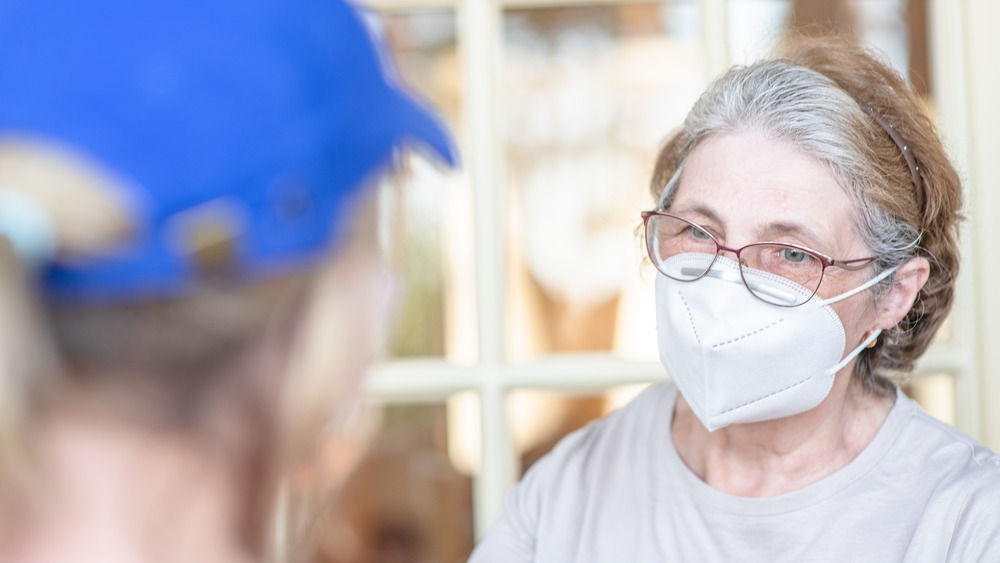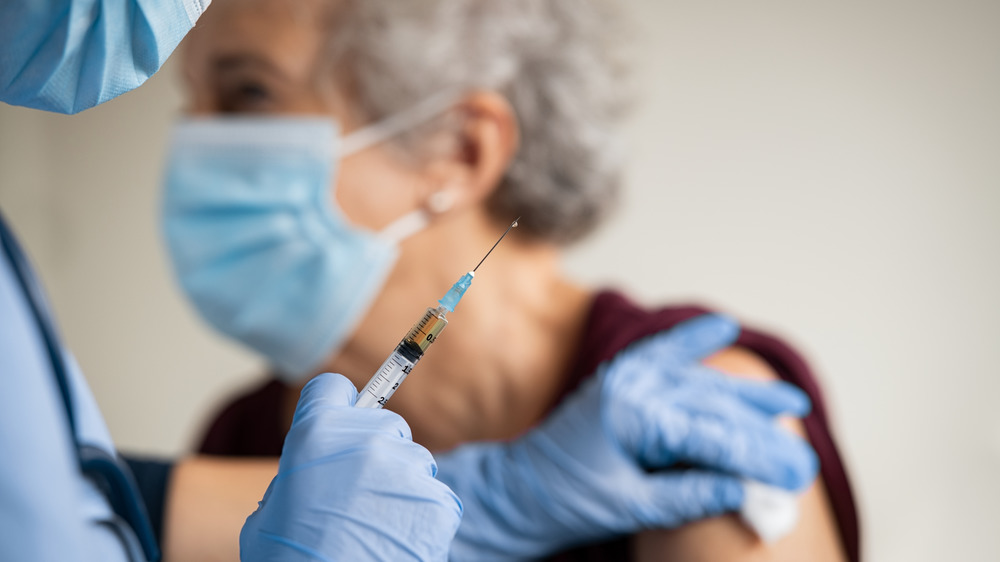COVID Reinfection Might Be More Common In This Age Group
Ever since the COVID-19 global pandemic emerged last year, researchers have been trying to understand whether COVID reinfection was possible, and if so, how frequently it could occur. For months there seemed to be no indication of reinfection. Then, in August 2020, a 33- year old man from Hong Kong developed COVID-19 several months after his previous infection (via Science News). Since then, it has been determined that COVID reinfection is not very common, occurring in less than one percent of those who previously tested positive. However, a new study published in March 2021 in The Lancet, found reinfection rate to be over three percent in a certain age group, raising concerns.
Most people who have had COVID-19 will likely have natural immunity for up to six months, but some people may have less immunity. The new study looked at rates of reinfection among various age groups in Denmark. Researchers analyzed the infection rates of the first and second COVID-19 surges in the country. What they found was that people 65 years of age or older had a marked decrease in natural immunity, leaving them more vulnerable to reinfection.
Findings illustrate the importance of vaccinating high-risk groups
The study found that people under the age of 65 had approximately 80 percent natural immunity after six months of their initial diagnosis. However, in the 65 and older group, that natural protection dropped to somewhere around 47 percent — a significant decrease. These findings have big implications, particularly when it comes to vaccination and disease mitigation efforts.
Over one year into the COVID-19 pandemic and many have still to see their elderly loved ones, as they have been deemed the most vulnerable age group from the start. Now with increased reinfection rates in this group, it is more critical than ever to keep them safe. This decrease in immunity is not necessarily unexpected since, as a person ages, their immune responses start to deteriorate, but this demonstrates the importance of prioritizing vaccination efforts, as vaccines create a more robust immune response.
There has already been significant progress in the vaccination efforts in the U.S. in the 65 and older population. According to the Centers for Disease Control and Prevention (CDC), 37.6 percent of people within this group are fully vaccinated and over 65 percent have received at least one dose. Since vaccinations have begun across the country, COVID-19 cases among nursing home staff members have dropped 83 percent and dropped 89 percent among nursing home residents (via CNN). This is wonderful news and a significant step in the right direction after nearly a year of tragedy.
So if you have a loved one aged 65 or older, make sure to continue practicing safety measures: where your mask, social distance, wash your hands, and encourage them to get vaccinated.


